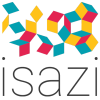DevOps Engineer
Isazi Consulting is an Artificial Intelligence company based in Johannesburg. We are a young, fun and innovative tech company that solves difficult, real world challenges across various industries through building machine learning and advanced analytics software solutions. We believe our success is best felt through enabling our clients to make decisions informed by data.
At Isazi Consulting, we are a dynamic team of data-driven, colourful geniuses who love to solve real problems in different ways. We are built on passion, trust and thinking outside of the box. We value unique, free-thinking individuals who chase the thrill of building from scratch. We are looking for new colleagues who value trust, creativity, autonomy, and mastery.
Purpose of role
The primary function of the DevOps Engineer is to work closely with the internal product, integration teams, configuration management, develop automated build and deployment pipelines. This role will develop Kubernetes deployment strategies and deployment modules, and build cloud architectures. Isazi deploys their products on Isazi managed cloud infrastructure as well as on private cloud environments managed by our customers. When deploying on customers' private cloud, the DevOps Engineers are responsible for articulating the necessary cloud architecture required for a successful deployment to the technical stakeholders. DevOps Engineers will also assume a support role based on the team roster for supporting the various environments. The DevOps Engineer is key in building a scalable and maintainable operating model.
Responsibilities:
- Develop Automated build and deployment pipelines using Gitlab.
- Configuration of infrastructure using Terraform for GCP, AWS and Azure and perform end-to-end deployment of our products for clients.
- Build Kubernetes deployment strategies for micro-services.
- Engage with key stakeholders (internal and external) for building and supporting DevOps strategies.
- Release updates to current environments during the weekly deployment window.
- Technical support on infrastructure and platform level following the support roster of the team.
- Monitor SLAs and perform RCAs during various severity issues.
Qualifications and Criteria:
The ideal candidate will possess the following qualifications and criteria:
- Bachelor's degree or equivalent qualifications in Computer Science, Information Systems, Information or Electrical Engineering.
- At least 2 years experience working as a DevOps Engineer.
Skills:
- Deep understanding of software deployment and support.
- Deep understanding of software development versioning strategies.
- Cloud Providers - GPC, AWS, Azure, basic knowledge of command-line-interface CLI tools.
- Container technologies: Docker, Kubernetes.
- Database operations of PostgreSQL.
- Scripting: Python, Go, Bash.
- Configuration management: Terraform, Packer.
- Linux - 2 years experience Debian, Ubuntu or RHEL.
- Managing stakeholder expectations.
Qualities:
- Analytical thinking.
- Strong communicative abilities and interpersonal skills.
- Ability to work on multiple tasks simultaneously.
- Ability to work in high pressure environments and meet deadlines.
- Strong level of accountability and ownership.
- Proven track record of working in a DevOps team.
- Passionate about automation, cloud technologies and scalability.
- Ability to build cloud and deployment architectures.

